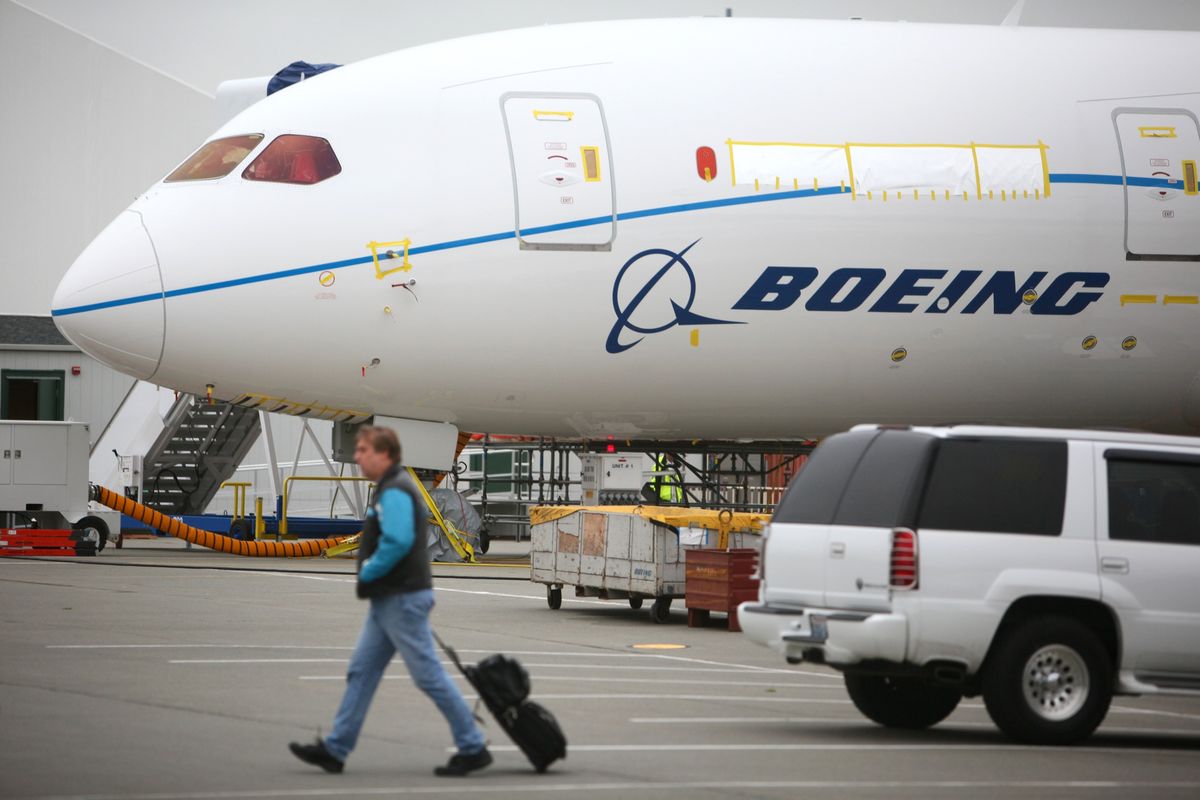Boeing plant goes to S.C.
Washington unions, business climate have been turnoffs

SEATTLE – Boeing Co. will open a second assembly line for its long-delayed 787 jetliner in South Carolina, expanding beyond its longtime manufacturing base in Washington state to take advantage of economic incentives and a nonunion work force.
The Chicago-based airplane maker said Wednesday it chose the site in North Charleston over Everett because it best suited plans to boost production of the highly anticipated jet, designed to carry up to 250 passengers.
The decision ended an interstate competition for the huge factory, with South Carolina prevailing over the state where Boeing has built airplanes for decades. It hands South Carolina production of a plane crucial to Boeing’s future but one plagued by problems stemming partly from the company’s reliance on suppliers spanning the globe.
South Carolina offered Boeing $170 million in incentives and relief from sales taxes on things like fuel used in test flights.
The move wasn’t entirely unexpected. Boeing already operates a factory in North Charleston that makes 787 parts and owns a 50 percent stake in another plant that also produces sections of the plane, Boeing’s best-selling new aircraft to date.
About 55 airlines have ordered some 840 of the planes since the program was launched in 2003 – far more than any other Boeing plane at the same stage of development.
Boeing also has long complained about the business climate in Washington and frequent strikes by production workers. At Boeing’s plant in North Charleston, workers last month voted against continued representation by the International Association of Machinists.
North Carolina, Kansas, Texas and California were also viewed as competitors for the plant. But Boeing said last week it had narrowed the choices to Washington and South Carolina.
Boeing ultimately could decide to move all 787 production away from Everett, said analyst Scott Hamilton of Leeham Co. The failure of Boeing and the union to reach a no-strike agreement meant Charleston was “a foregone conclusion.”
More ominously, Boeing is expected to decide in three to five years on replacement planes for its best-selling 737 and 777 models and where they will be built.
“Over the course of the next decade and a half you could see Boeing being just a shadow of itself” in Washington, he said.
Everett is the site of Boeing’s commercial aircraft division, where the company has assembled early versions of the 787. Last year, a walkout by union machinists there and at other sites in Washington forced the company to shut down its commercial plane operations for eight weeks.
Unlike Boeing’s other commercial jets, the 787 will be built mostly from lightweight carbon composite parts instead of aluminum. As a result, the 787 will be more efficient, quieter and have lower emissions than other airplanes, Boeing says. The midsize plane will include wider seats and aisles and larger windows.
Boeing has relied on suppliers to build huge sections of the plane that are later assembled in Everett. But that approach so far has proved problematic, with ill-fitting parts and other glitches hampering production.
The company could break ground in South Carolina as soon as next month, with the first 787 slated to leave the factory in the first quarter of 2012. The company aims to produce 10 of the planes a month by 2013. By comparison, it makes about 31 of its 737s and seven of its popular 777s a month.
South Carolina Gov. Mark Sanford called the plant a “monumental” investment that will spur the state’s already-growing aerospace hub.
In Washington, Gov. Chris Gregoire said she and other officials would work hard to land future, larger Boeing projects.
She said the decision came down to Boeing’s rocky relationship with the Machinists union and a failure to reach a no-strike deal: “I’m disappointed, I’m angry, I hurt for the workers and I think the company made the wrong decision. But I wasn’t at the table.”
The Machinists’ international president, Tom Buffenbarger, denied Boeing’s decision was based on concerns over future strikes. “Corporate decisions like this are years in the making, and this one is no different.”